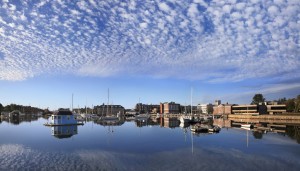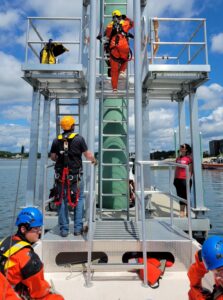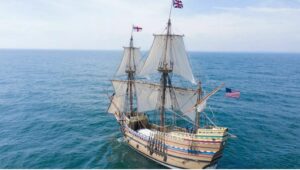 WOODS HOLE – The Phoenix Islands is a protected area larger than New England in the Central Pacific Ocean and is where scientists from the Woods Hole Oceanographic Institution and New England Aquarium are currently travelling to in order to complete a month-long research expedition.
WOODS HOLE – The Phoenix Islands is a protected area larger than New England in the Central Pacific Ocean and is where scientists from the Woods Hole Oceanographic Institution and New England Aquarium are currently travelling to in order to complete a month-long research expedition.
The 6,000-mile trek on the German vessel The Hanse Explorer will focus on combined effects of climate change and human activity on coral reef ecosystems.
WHOI biologist Simon Thorrold, who is co-directing the expedition from Cape Cod, explained that the area’s detached location and sparse population makes it ideal for a comparative study.
“It’s very isolated and as such, it hasn’t got a lot of human impact so it gives us a natural laboratory really for looking at how reefs used to function in the past, without humans,” he said.
He said it is incredibly difficult to tease-out the different kinds of impacts – both local and global – humans have on reefs, since a relatively small presence of people can often be detrimental to their health.
Human activity is, according to these scientists, not the only threat facing the reefs. In 2002, they suffered a mass bleaching event when ocean waters warmed over 21 Degree Heating Weeks – a phenomenon called the Pacific El Niño.
The diversity of life the reefs sustain will also be explored, from fish to crustaceans, mollusks to sea turtles.
Thorrold said most of the data collected this month will be coming back once the crew returns. From there, months of analysis will be necessary to establish if the area is at risk for another El Niño.
“It’s going to take a while to build the story, but ultimately I think it’s going to be a very interesting story,” he said.























Speak Your Mind